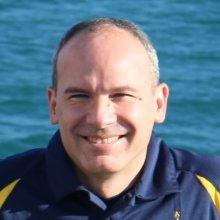
Alfonso Garcia Arriola
Tell us about your work / research. What kinds of things do you do?
As a middle school science educator, I seek to educate and develop scientifically literate students in a culturally inclusive environment that encourages leadership and responsibility. For me, education is not so much an accumulation of knowledge by students as it is “a process of acculturation into an interpretive community.” This means that as science educators, one of our roles is similar to that of a tour guide leading travelers through a foreign country, but in this case, we are leading our students through the scientific community. In light of this, we must recognize that some students may face challenges and difficulties transitioning back and forth between their culture and the scientific community culture, therefore, cultural awareness and addressing equity is of critical importance.
What sparked your initial interest in your career?
I was always interested in how we come to know things, how do we discover and how do we create knowledge. I have always been interested in the philosophical issues involving education, science, and the intersection of these fields. Epistemology is the study of knowledge and justified belief. As a science educator, I believe it is essential that we examine our own beliefs about knowledge. According to Monk and Osborne, epistemology does matter, because the answer to the question of ‘how we know’ is an important aspect of our account of science and the evidence for our ontological commitments. Sophisticated science epistemologies are instrumental towards improving students’ understanding and practice of scientific inquiry and are essential for full democratic participation in the 21st century.
Who influenced you or encouraged you the most?
My high school science teachers instilled in me a love of science. And it was my mentors and teachers in the fields of education and residence life that inspired me to a career in teaching.
What element of your work / study do you think is the most fascinating?
Some of my most memorable and most fascinating experiences in science education involve coaching students in the Department of Energy’s Science Bowl competition and mentoring students as they prepare their projects for presentation at the Intel Northwest Science Expo. I started taking student teams to the regional science bowl competition in 2002. In 2006, 2007, and 2008, our middle school team placed first in the regional competition and we traveled to Denver, Colorado to participate at the national level. Over the past 15 years, I have coached over 20 teams involving more than 75 students. In 2004, I began to mentor students completing science fair projects for presentation at the Intel Northwest Science Expo at Portland State University. Over the past 13 years, students in my science classes have earned close to 100 awards at this state level science competition.
What other jobs led you to your current career?
Some of my greatest learning experiences in my path to becoming an educator came from my work in my university's residence halls. My first job was as a Resident Assistant, mentoring about 40 freshmen students. Subsequently, I became a Resident Director and Area Director, managing about 3 residence halls and leading staff meetings. I also gained invaluable experience working for the university's Director of Multicultural Affairs.
What are your degrees and certifications?
Bachelor of Science in Biology - Gonzaga University 1995; Teacher Licensing Program - Gonzaga University 1997; Doctor of Education in Curriculum and Instruction - Portland State University 2017
What are your hobbies?
I enjoy playing right midfield for the Rose City Revolution soccer team. I also enjoy playing other sports such as tennis and golf. I like hiking and occasionally snow skiing in the pacific northwest as well.
What advice would you give to someone who wants to have a career like yours?
Enjoy the learning process and become a life long learner! To be a great science educator is a vocation, which means you are an active participant of the science education community. Develop relationships with other educators, scientists, engineers, students and learn from them and share your skills and knowledge with others. Education is not only about teaching and learning a specific subject, it's about developing relationships and creating an inclusive community.
How did you get involved with the Nautilus Exploration Program? How did you get on the ship?
I applied for the science communication fellowship after I conducted research on opportunities that promote collaboration between scientists and educators. After my participation in numerous summer professional development experiences, I was very excited to participate in one involving marine biology and sea-time.
Expeditions
Alfonso participated in the following Ocean Exploration Trust expeditions:
